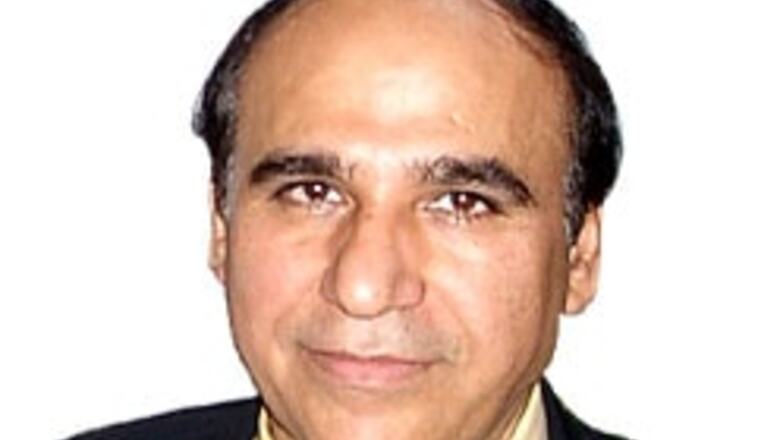
views
The basic need of the country is to accelerate universal access to enable provision of telecom services at affordable rates for the development of the economy. Growth of the entire Indian Industry is highly dependent on timely availability of advanced telecom services.
In addition, the Government’s resolve to carry forward the Information and Communication Revolution and to reach its fruits to all citizens, especially in rural and underdeveloped regions is the most important vision for this working group on promoting telecom manufacturing in the country.
Telecommunications, earlier regarded as a minor component of infrastructure, has became a strategic factor of development at all levels, from individual firms to large corporations. Research by the World Bank and others has documented the development role of telecommunications.
It was shown that telecommunications services are used in connection with a wide range of economic production and distribution activities, delivery of social services, and government administration. They also contribute to the quality of life and to social, political, and security objectives. Where available, telecommunications benefit a broad cross-section of the urban and rural population attending to income, education, and occupation.”
The vision of the Government of India as conveyed by the Hon’ble Prime Minister conveyed while inaugurating a recent telecom event is very welcome:
* “I assure you that the Government will develop a forward looking policy regime that will encourage investment in manufacturing in telecom sector”
* “While we can be satisfied with the growth in tele-density, I am concerned about our capabilities in telecom R&D & manufacturing. Can we have a sector where we are world class in telecom network but do not have an adequate manufacturing presence?”
Under these circumstances, the union budget 2008 is being viewed as the first official government policy announcement to implement the vision of the Prime Minister. It is expected that the proposed policy would draw a strategic time bound plan to ensure a quantum growth of the telecom manufacturing industry with an aim to make India a global hub for international manufacturing.
The Budget 2008 is therefore expected to identify all the disability factors hindering the growth of the telecom Industry and ensure their elimination. The aim of policy on manufacturing should be to serve the needs of consumer, reduce the total cost of equipment and ensure and ensure that competition in the provision of equipment is not distorted by burdensome and unnecessarily restrictive policies.
Most countries, which have succeeded in setting up large scale telecom equipment manufacturing industry, have done so without taking recourse to high taxation. High duties and taxes on telecom equipment results in higher cost of providing telephone connectivity to the rural and unconnected areas.
This severely impedes the large-scale penetration of telephones in rural areas, causing severe impact on social and economic growth of the country. The adverse price elasticity has resulted in far more adverse demand elasticity. Without enough demand for various telecom products in the country, the economies of scale are further reduced. Producing telecom equipment at un-viable economies of scale has therefore resulted in increased cost of production.
PAGE_BREAK
Thus, the entire local telecom manufacturing industry (except for the cellphones) is languishing as a small time, low value added industry. In many cases the foreign exchange outgo on imports by manufacturers is far higher than a competitive built product. The key to reducing the cost of telecom equipment and increased manufacturing activity is the reduction of Excise duty on all telecom equipment from 16% to 8%. This reform is critical in making India a global hub for international manufacturing. This issue has also been discussed at length with the Planning Commission as well as National Manufacturing Competitive Council and there is a full support that this recommendation is key to bringing telecom manufacturing into the country.
Sriperumbudur in Tamil Nadu is leading India’s transformation into a global telecom manufacturing hub which is being dubbed as India’s equivalent of China's Shenzhen, or at least a miniature version of it. Thanks to the progressive policy initiative of Mr. Chidambaram for the cell phone industry, Sriperumbudur is today on way to churning out as many mobile phones as Shenzhen in southern China does.
This is not a small achievement, considering Shenzhen makes one out of eight handsets sold anywhere in the world. The question is whether India has the political will and the administrative leadership to take Sriperumbudur to its full potential. The cluster of SEZ units emerging in Sriperumbudur is too valuable an opportunity to be left to chance.
The industry must be supported with suitable tax breaks, world-class public infrastructure such as expressways, railway links and an airport, and private amenities, including hotels, apartments, shopping malls and entertainment sites. By next year many component manufacturers -- including Taiwan's Foxconn, -- will begin work in Sriperumbudur. Some 50,000 people will be working in the area when it's fully operational next year. However, without suitable policy initiatives and infrastructure support, this golden opportunity may also slip out of our hands
If supply created its own demand in China, the reverse is just waiting to happen in India. To realize this opportunity, Government of India has to come out with an integrated telecom manufacturing policy in this budget. The Software policy announcement late 80s changed the landscape of India’s software industry which prompted the global companies such as Motorola to have a much better understanding of the framework for investment and market development and Motorola established strong research and development centers in India with thousands of engineers and academic partnerships with many technical universities and local software houses.
Today, Motorola’s India engineering centers develop nearly 40% of the software used in all Motorola mobile phones worldwide. Similar achievements are possible with a dedicated manufacturing policy. At a minimum, the entire Domestic Tariff Area Sales of Sriperumbudur SEZ units have to be allowed at 50% or less of the total applicable import duties (BCD+CVD) along with complete Central Sales Tax exemption on all telecom and IT products manufactured in India.
The issue of sales tax refund for SEZ units which is pending with Tamilnadu Government for over a year is already sending a distress signal. In addition to the manufacturing policy, there are basic business enabling infrastructure such as airports, highways, uninterrupted power, traffic management with car pool incentives and pollution controls which are sadly lacking, even in Sriperumbudur. Unless these are addressed as national imperatives with political and administrative will, the manufacturing growth may not take off.
The Author, B Bhatia, is Regional Director, India, SAARC and South East Asia, Motorola Global Govt Affairs &Public Policy (GGA&PP), President Core group of Telecom Industries Associaon (CTIA), Vice President Telecom Equipment Manufacturers Association (TEMA) and Vice President ITU-APT Foundation of India.















Comments
0 comment